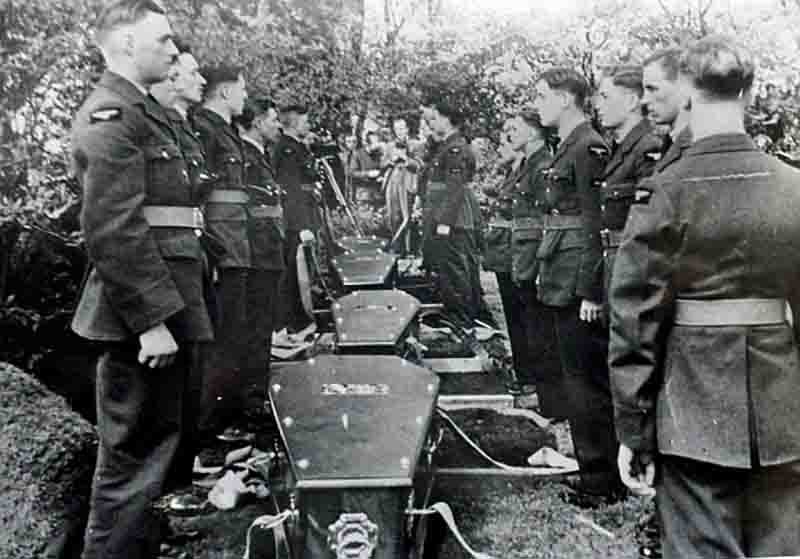First civilian deaths in England
1st May 1940: A large explosion following the crash of a German bomber is a taste of things to come

On the night of 30th April/1st May 1940, Frederick Gill and his wife Dorothy became the first civilian fatal casualties of the war in England. Britain was not the target of German bombing at all at the time. Hitler still thought that he might make peace with Britain and was avoiding hostile action against the country generally. Only one civilian had been killed so far. James Isbister had been killed during an air raid targeted at a Royal Navy base on the island of Orkney, north of Scotland, on 16th March.
Clacton on Sea, Essex had not been the target of an air raid - but suffered from an accident. The Heinkel bomber that crash-landed on the Gill’s house at 25 Victoria Road had been attempting to lay mines intended for the shipping lanes off the east coast. The plane was damaged by anti-aircraft batteries near Harwich and was seeking to make an emergency landing.
The plane circled over Clacton-on-Sea in Essex for about half an hour before it came down. Moments later, there was an enormous explosion. Many people looking out of their windows were injured in the blast. Sixty-seven houses were seriously damaged and many more had tiles blown off and windows broken. Over 160 people were injured, 34 of them classified as serious.
Air Raid Precaution officials pointed out that an air raid shelter close to the explosion had remained intact. But in this case, no Air Raid warning had been given.
The rescuers soon identified ‘a large hot water tank’ amongst the rubble. After some time someone noticed German writing on it.
Only after Royal Naval mine disposal officers arrived on the scene was it identified as a German ‘parachute mine’. The Gills had also been the first civilian casualties as a consequence of this naval weapon, soon to become a notorious menace in the Blitz when deliberately targeted at civilians.
The Heinkel had carried two mines. One of the mines exploded after the crash, but Lieutenant Commander Ryan and Chief Petty Officer Ellingworth successfully defused the other.


Only months later, on the 21st September 1940, Ryan and Ellingworth died whilst defusing another mine in Dagenham. It was less than a week after the Germans had started using naval parachute mines as part of their general bombing campaign.




